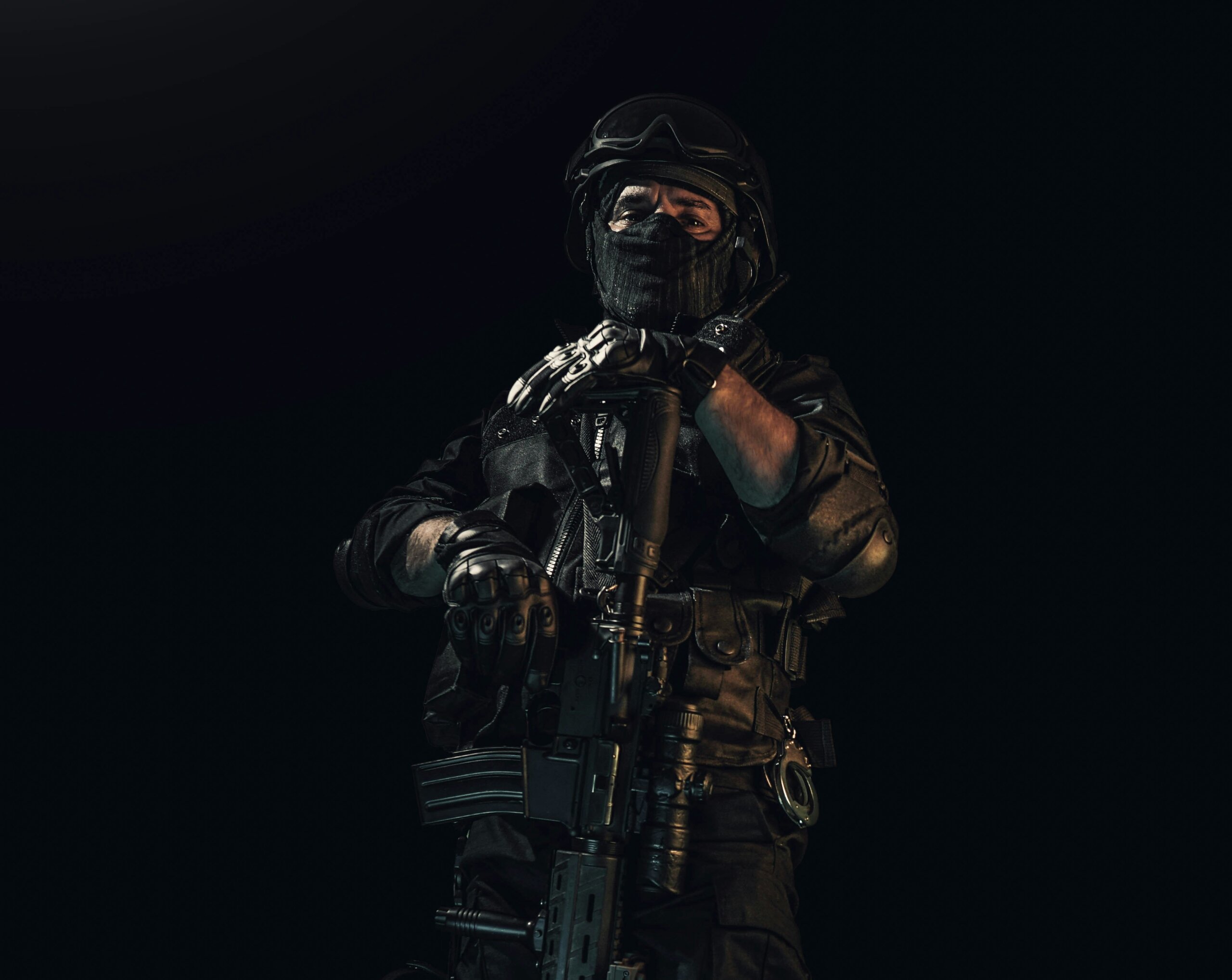
Plastic injection moulding in the defence industry: applications and advantages
Blog
Plastic injection moulding in the defence industry: applications and advantages
Authored By: SDI Plastics
Every component of the defence industry requires accuracy, stability and versatility. With military hardware increasing in complexity, so must the materials and techniques that are used to produce these products to comply with rigorous performance standards. Plastic injection moulding is one such manufacturing process that has become a necessity for the defence industry.
It provides an affordable, time-saving means of producing high-volume and specialty components within bespoke tolerances. This blog explores the technical use of plastic injection moulding in defence applications, as well as the strategic benefits it can provide in Australia.
Overview of plastic injection moulding
Plastic injection moulding is a highly cost-effective manufacturing technique that produces parts by infusing hot plastic into a specialised mould. Plastic crystallises in the mould, creating a highly repeatable piece. It’s best suited to high-volume production runs where reliability, durability, and cost-effectiveness are essential.
Key process stages:
- Design and manufacture of mould: Firstly, it involves engineering and fabricating a custom mould, typically from hardened steel or aluminium. The mould must be designed to withstand high pressures and temperatures during injection.
- Material Selection: The plastic pellets, often thermoplastics or thermosetting polymers, are chosen depending on the mechanical, environmental, and safety characteristics that the product is required to achieve.
- Plastic Injection: The plastic is melted and injected into the cavity of the mould under high pressure. Pressurised injection ensures the plastic fully penetrates the mould and offers extremely high accuracy even for complicated geometries.
- Cooling & Solidification: Once the plastic is injected, the mould is cooled to allow the plastic to crystallise in the specified form. Temperatures are regulated to prevent warping or shrinkage and hence maintain dimension consistency.
- Ejection: Once molten, the piece is released from the mould and then trimmed or finished to the desired level of quality.
Defence industry requirements – why plastic injection moulding?
Materials and components in the defence industry are exposed to extreme environmental and operational stresses. Products need to work consistently with extreme temperatures, chemical reactions, mechanical forces, and electromagnetic interference (EMI). In answering these problems, defence industry plastic injection moulding has a number of advantages over older, metal-based materials:
- Weight reduction: Lightweight materials are essential for defence systems, especially for aeroplanes, weapons, training devices, drones, and mobile soldier platforms. The ability to replace metal parts with high-tech polymers will drastically reduce the weight of all the equipment, thus maximising vehicle fuel economy and reducing employee workloads.
- Durability and Environmental Resistance: High-performance polymers for injection moulding have high durability, UV degradation, and chemical resistance, making them the best option for environments with extreme conditions. This is particularly useful in ocean- and desert-based applications where the parts are corrosive salts or exposed to high temperatures.
- Mass Production Cost Efficiency: For large-volume defence components, like communication module housings or military vehicle fasteners, PIMO is an efficient solution. Production costs are minimal once the tooling is created, making it very scalable.
Industrial application of plastic injection moulding in defence
The versatility of defence industry plastic injection moulding means that it is suitable for various defence purposes. Here, we review some of the most pressing applications in the Australian defence industry.
1. High-Precision weapon system components
In modern weaponry, precision components are integral to maintaining consistent performance and reliability. Plastic injection moulding is used to manufacture grips, stocks, and ergonomic accessories for small arms and other handheld weapon systems. These polymer-based parts offer the dual benefits of being lightweight while providing significant strength and wear resistance. Furthermore, polymers can be moulded to meet exact dimensional tolerances, ensuring that each component fits seamlessly into complex weapon assemblies.
For example, high-performance thermoplastics such as polyether ether ketone (PEEK) or polyamide-imides (PAI) are often selected for their high strength-to-weight ratio and resistance to extreme temperatures, making them suitable for both internal and external weapon system components.
2. Electronic enclosures and EMI shielding
In the age of network-centric warfare, communication devices and electronics are a critical part of defence operations. Defence industry plastic injection moulding is extensively used to produce ruggedised enclosures for radios, GPS units, night vision equipment, and other electronics. These enclosures must not only protect the delicate internal components from physical damage but also provide electromagnetic shielding to prevent interference with other electronic systems.
By incorporating conductive fillers such as carbon fibres or metallic particulates into the polymer matrix, moulded plastic components can achieve effective EMI shielding, meeting the stringent requirements of military-grade electronics.

3. Unmanned aerial vehicles (UAVs) and drones
Australia’s defence strategy increasingly relies on UAVs for surveillance, reconnaissance, and other tactical operations. UAV components must be both lightweight and durable to maximise flight times and payload capacity. Plastic injection moulding is ideal for producing UAV airframes, housings, and structural components from advanced polymers such as carbon-fibre-reinforced composites or polyetherimide (PEI), which offer high strength, chemical resistance, and thermal stability.
The use of injection-moulded components in drones also allows for high-volume production with consistent quality, making it easier to scale up for large deployments.
4. Protective gear and ballistic armour
In combat scenarios, the safety of personnel is paramount. Plastic injection moulding plays a crucial role in the development of lightweight, high-performance protective gear, such as helmets, face shields, and ballistic vests. Modern polymers such as Kevlar-reinforced composites, which can be injection moulded, provide excellent impact resistance while keeping overall weight to a minimum. This is particularly important for Australian Defence Force (ADF) personnel, who operate in diverse and often challenging environments.
5. Military vehicle components
Military vehicles, whether land-based or airborne, are subject to extreme operational demands. Defence industry plastic injection moulding is used to manufacture a wide range of vehicle components, including dashboards, control panels, interior trims, and even certain external body parts. These components must withstand exposure to UV radiation, saltwater, and temperature extremes, all while maintaining structural integrity.
Polymers such as polyphenylene sulphide (PPS) and acrylonitrile butadiene styrene (ABS) are frequently employed for these applications due to their excellent mechanical properties and environmental resistance.
The benefits of plastic injection moulding for Australian defence?
Australia’s geographical positioning and security needs require solutions that are both effective, cost-effective and resilient. Plastic injection moulding solutions for Defence, have a number of strategic benefits that match the requirements of the Australian Defence Force (ADF).
1. Local manufacturing and supply chain security
Over the past few years, Australia has made great strides towards providing sovereign products for the Defence industry. Plastic injection moulding further facilitates this by allowing local manufacturing of critical parts. This decreases dependence on global suppliers and increases supply chain safety by ensuring essential parts are in place when necessary, such as in an emergency or during geopolitical conflicts.
Australian companies specialising in defence industry plastic injection moulding can provide bespoke solutions that meet ADF requirements, which reduces lead times and improves quality control.
2. Sustainability and environmental impact
Australians care more about sustainability than ever before, even when it comes to the military. Combining injection moulding with recycled polymers and bioplastics provides an environmentally safe manufacturing process. Almost all injection-moulded components can be engineered for recycling to reduce the environmental footprint of defence.
3. Rapid prototyping and design flexibility
This fast prototyping and iteration of design is critical to the fast-paced defence industry. The plastic injection moulding, and especially the 3D printing techniques combined with fast mould production, make it possible to produce a component quickly from idea to final piece. That flexibility is essential when creating and deploying new technologies that will need to be implemented quickly in the face of changing threats.
In Conclusion – Partnering for success
With the increased accuracy, durability and affordability, plastic injection moulding has become a key component in defence manufacturing for a multitude of applications. While Australia’s defence requirements evolve over time, locally fabricated high-performance components will remain important for keeping up with the competition.
Whether you work in the Australian defence industry or need expert defence industry plastic injection moulding assistance, SDI Plastics is your reliable source. SDI Plastics is well experienced in moulding precision parts for military use, with fast turnaround times and economical solutions.
Book your free consultation
Give us a call to book your free consultation for your plastic solutions in Australia, and learn how much value can be added to your business with SDI Plastics by your side.